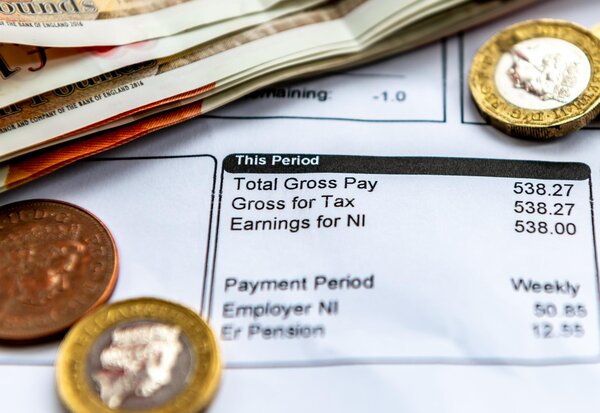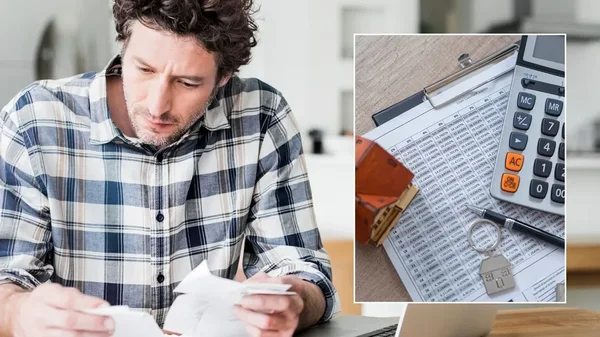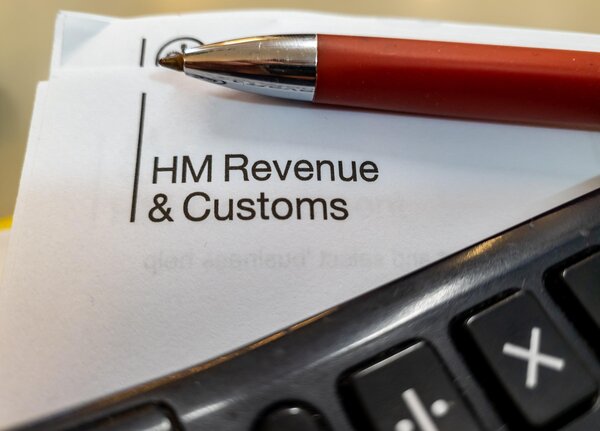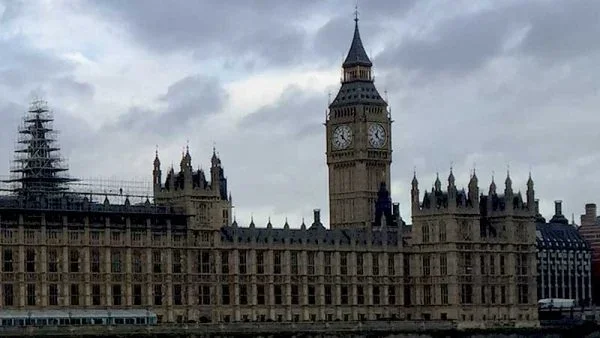Let’s Break This Down Together...
Wondering how to handle tax when you’re freelancing in the UK?
Figuring out how to register, track expenses, and stay on top of deadlines can feel overwhelming, especially if you’re just starting out. The rules are different from being an employee, and the penalties for mistakes can be steep.
But don’t worry! This guide walks you through the freelance tax process step by step, from registering with HMRC to claiming expenses and filing your return. By the end, you’ll feel more confident, more organised, and (hopefully) less stressed when tax season rolls around. Let’s dive in!
Being your own boss is liberating, but navigating the UK tax system as a freelancer can feel like learning a foreign language. Understanding your tax obligations early saves penalties and stress later.
With proper planning, you can maximise deductions and keep more of your hard-earned income. The tax rules for freelancers differ significantly from those for employees.
Our Pie tax app makes tracking income, expenses and tax deadlines effortless for freelancers of all experience levels.
How to Pay Tax as a Freelancer in the UK: Getting Started with Self-Assessment
As a freelancer in the UK, you’ll need to register for Self-Assessment with HMRC. The UK tax system requires all self-employed individuals to report their income and pay taxes through HM Revenue and Customs (HMRC), which oversees tax collection and compliance for freelancers.
You must register within 3 months of starting your freelance work. If you miss this deadline, you could face a penalty, so it’s best to sort it early. Many freelancers follow these steps to stay compliant and avoid penalties.
The tax year in the UK runs from 6 April to 5 April the following year. This might seem odd, but it’s just one of those quirky British traditions!

How to Pay Tax as a Freelancer UK: Step by Step
First, create a Government Gateway account on the HMRC website. This is your portal to all things tax-related, and you can pay taxes online through this portal.
Next, register as self-employed. You’ll receive a Unique Taxpayer Reference (UTR) by post within about 10 working days. Some freelancers may need to submit a separate tax return if they operate as a partnership or limited company.
Keep track of all your income and expenses throughout the year. A simple spreadsheet works for beginners, but dedicated accounting software makes life easier. Many freelancers are paid hourly, so keeping accurate accounts is essential for tracking all payments.
When the tax year ends, you’ll need to complete your Self-Assessment tax return by the following 31 January. For example, for the 2023/24 tax year, your deadline is 31 January 2025. You are reporting income from the previous tax year.
Pay your tax bill by the same date (31 January). You might also need to make ‘payments on account’ – advance payments towards your next tax bill. To pay freelance tax, follow the HMRC process, and remember that your total earnings, including from employed work, can affect your tax calculation.
I remember my first year freelancing, I was shocked to discover I needed to pay half of next year’s estimated tax in advance. Setting aside enough money was a valuable lesson learned the hard way.
Understanding What Tax You'll Pay
As a freelancer, you’ll pay Income Tax on your profits after expenses. Your income is taxed according to specific tax bands, which can vary depending on your total income. The rates for 2023/24 are:
Personal Allowance: £0 to £12,570 (0%)
Basic rate: £12,571 to £50,270 (20%)
Higher rate: £50,271 to £125,140 (40%)
Additional rate: Over £125,140 (45%)
These tax bands may differ in Scotland and Northern Ireland.
You’ll also pay two types of National Insurance: Class 2 (a flat weekly rate) and Class 4 (a percentage of your profits). Sole traders and other self-employed individuals are responsible for their own self employed taxes.
Remember, you only pay tax on your profits – your income minus your business expenses. This makes tracking expenses crucial for reducing your tax bill.
Registering as a sole trader is necessary for tax purposes, and sole traders are the most common type of self-employed business in the UK.

Claiming Expenses to Reduce Your Tax Bill
One perk of being self-employed is claiming business expenses to reduce your taxable profit. This can significantly lower your tax bill. Tax deductions and allowable deductions can significantly reduce your taxable profit, so it's important to understand which expenses qualify.
If you work from home, you can claim a portion of your bills like electricity, heating and internet. There’s even a simplified flat rate option for home working.
Travel costs (except regular commuting), professional subscriptions, work equipment, software, and marketing costs can all be claimed. Not all expenses are deductible, and it costs money to run your own business, so always check HMRC guidelines for current rules.
Keep receipts for everything! HMRC requires you to keep records for at least 5 years after the tax return deadline.
Digital record-keeping is perfectly acceptable. Taking photos of receipts and storing them in a dedicated folder can save physical space and make filing easier.
Some businesses, especially small businesses, may need to register for VAT (value added tax) if their revenue exceeds the threshold, and VAT is an added tax on goods and services. Certain goods, such as children's clothes, are subject to a 0% VAT rate.
Many freelancers provide services to a range of businesses, and understanding allowable deductions is key for managing your own business finances.
Tax Reliefs and Allowances
Freelancers can take advantage of a range of tax reliefs and allowances to help reduce their tax bill. Claiming allowable business expenses, like equipment, travel for work, and training, can make a big difference to how much tax you pay.
You can also get relief on pension contributions and charitable donations, so it pays to keep detailed records of every expense and donation related to your business.
If you buy assets for your freelance work, such as a laptop or specialist software, you may be able to claim capital allowances, reducing your taxable profit even further. Don’t forget about the trading allowance, which lets you earn up to £1,000 from self employment or freelance work tax-free each year.
To make sure you’re claiming everything you’re entitled to, keep all receipts and records organised, and refer to the HMRC website for the latest information. If you’re unsure about what counts as an allowable expense or relief, consider seeking professional advice to maximise your tax savings.

Record Keeping and Tax Returns
Good record keeping is the foundation of stress-free tax returns for freelancers. Keeping detailed records of your income and expenses throughout the tax year will make completing your Self Assessment tax return much easier and help ensure you’re paying the right amount of tax.
You should keep copies of all invoices, receipts, and bank statements related to your business. Whether you use accounting software or a simple spreadsheet, make sure you track every payment received and every business expense. This not only helps with your annual tax return, but also gives you a clear picture of your business finances.
When it’s time to file your Self Assessment tax return, you’ll need to include all your business income and allowable business expenses. Filing online is quick and convenient, but you can also submit your tax return by post if you prefer. Just remember to meet the deadline to avoid penalties.
Tax Deadlines and Penalties
Meeting tax deadlines is crucial for freelancers to avoid unnecessary penalties and interest. The UK tax year runs from 6 April to 5 April, and your Self Assessment tax return must be filed by 31 January following the end of the tax year. Any tax bill you owe must also be paid by this date.
In addition to your main tax payment, you may need to make advance payments towards your next year’s tax bill, these are called payments on account and are due by 31 January and 31 July each year. If you think your tax bill will be lower than expected, you can apply to reduce these payments.
Missing deadlines can result in fines and interest charges, so it’s important to stay organised and pay your tax bill on time.
You can pay online, by phone, or by post, and the HMRC website has all the details you need. Setting reminders and keeping your account details up to date will help you stay on top of your payments and avoid any last-minute stress.

Smart Ways to Manage Your Tax
Set aside money for tax as you earn it. A good rule of thumb is to save 25-30% of your income in a separate account. As a freelancer, you are responsible for managing and paying your own taxes, and maintaining a full NIC record is important to ensure you qualify for state benefits and the state pension.
Consider filing your tax return early. The deadline is 31 January, but you can file anytime after the tax year ends on 5 April.
Early filing gives you time to budget for your tax bill. It also reduces stress during the January rush when accountants are busiest.
Think about using accounting software designed for freelancers. These tools can save hours of admin time and help you claim all eligible expenses.
You may also need to keep additional documents, such as invoices, self-billing statements, or tax certificates, especially if you work with international clients.
Don’t fear HMRC. If you’re struggling to pay, contact them before the deadline – they often offer payment plans for those in genuine difficulty.
Final Thoughts
Getting to grips with your tax obligations might seem overwhelming at first, but it gets easier with practice. Good record-keeping is your best friend as a freelancer.
Remember that paying your tax correctly and on time isn't just about avoiding penalties. It's about building a sustainable business where you understand your true financial position.
With some organisation and the right tools, managing your freelancer taxes can become just another part of your routine. This leaves you free to focus on what you do best – your work.
Pie tax: Simplifying how to pay tax as a freelancer uk Tax
Starting your freelance journey should be exciting, not bogged down with tax worries and spreadsheets. The UK's first personal tax app takes the stress out of self-assessment.
Pie tax shows you exactly how much tax to set aside as you earn, with real-time calculations specific to UK freelancers. No more guesswork or nasty surprises when your tax bill arrives.
We know freelancers often juggle multiple income streams. Our receipt scanning feature captures expenses instantly.
When tax season arrives, Pie tax can submit directly to HMRC, ensuring you meet deadlines without the last-minute panic. All your records are stored securely in one place.
Fancy seeing how it works? Pop over to Pie tax to explore how we're helping freelancers like you spend less time on tax admin and more time doing what you love.











